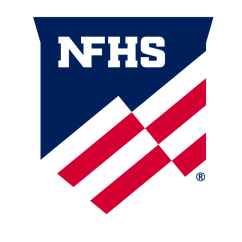The NFHS Voice

 The NFHS Voice
The NFHS Voice
Hazing Must Not Be Tolerated in High School Sports, Performing Arts
Dr. Karissa L. Niehoff, NFHS Executive Director
In a column earlier this year, we shared some lessons we have learned in high school sports and performing arts as a result of the COVID-19 shutdown last year.
High school sports and performing arts are important for our nation’s youth – and the mental and emotional health issues that surfaced when these activities were cancelled in many parts of the nation showed the significance of these programs. As most of these activities have returned this fall – still amid challenging times – excitement has returned to millions of students, coaches, school leaders and parents.
In that same column, we also noted that the pandemic hopefully has helped us to become better people – thankful and appreciative for what we have – and that HOPEFULLY we have learned the need to show respect for opponents, officials and others. Recent events, however, would indicate that there is still work to be done.
It is difficult to understand why people would mistreat others within the setting of high school sports and other activities – particularly after not having the opportunity for competition last year. In the past month, however, there have been several hazing incidents involving high school sports teams; and most recently, another school system is investigating alleged racial taunts against another team, which caused cancellation of an upcoming football game.
We know that the majority of student-athletes and coaches are not involved in hazing incidents and are making a positive difference in the lives of others. However, just one of these incidents is too many. High school sports and performing arts are education-based and designed to improve self-esteem in young people – not tear it down or destroy it.
By definition, hazing is any humiliating or dangerous activity expected of a student to belong to a group, regardless of the person’s willingness to participate. Any kind of initiation expectations should never be part of high school sports or performing arts.
Education and prevention must start from the beginning. School leaders must first establish an anti-hazing culture. Although traditions are often a part of high school athletics, these events must be presented in a positive, inclusive way. There should be no initiation process for first-year team members. Instead, rookies or newcomers should be welcomed and treated with respect from their first appearance on a team.
One of the myths that must be dispelled is that hazing builds camaraderie. Nothing could be further from the truth. Hazing tears people down; it can bring down a team and, in some cases, has ended seasons or led to more severe and unfortunate conclusions. There is never a good ending to any hazing ritual.
To build a positive school culture, coaches and athletic directors must take proactive steps. School leaders must supervise student-athletes and make it crystal clear with every student that hazing will not be tolerated. An anti-hazing policy must be developed, and it should be presented to every student and parent in advance of every sport season. The policy should be simple – no tolerance for hazing of any kind.
A tremendous resource to help in establishing a positive school culture is the online education course, “Bullying, Hazing and Inappropriate Behaviors,” which is available through the NFHS Learning Center at www.NFHSLearn.com. This course educates coaches about their legal responsibilities to provide a safe and respectful environment for the students in their care.
In addition, “Hazing Prevention for Students” is a free course designed to teach students how to identify hazing, when to step in when needed, and why they should notify proper authorities.
When establishing a school’s approach to hazing, two words should not be considered: silent and passive. To ensure that no more of these egregious incidents occur this year in high school sports, school leaders must say it often and say it with passion: “Hazing will not be tolerated.”
Dr. Karissa L. Niehoff is in her seventh year as chief executive officer of the National Federation of State High School Associations (NFHS) in Indianapolis, Indiana. She is the first female to head the national leadership organization for high school athletics and performing arts activities and the sixth full-time executive director of the NFHS. She previously was executive director of the Connecticut Association of Schools-Connecticut Interscholastic Athletic Conference for seven years.









